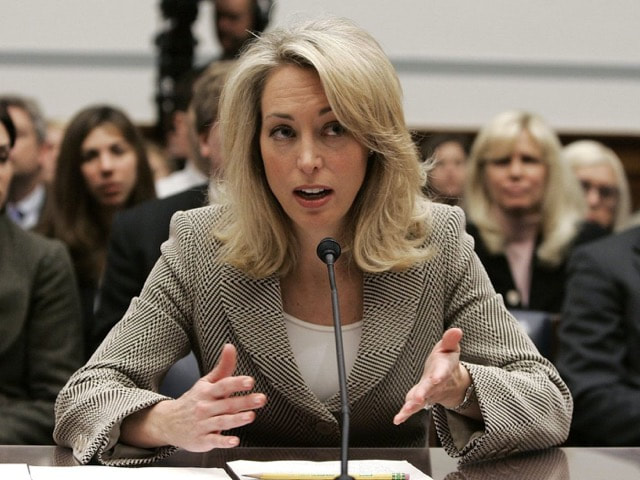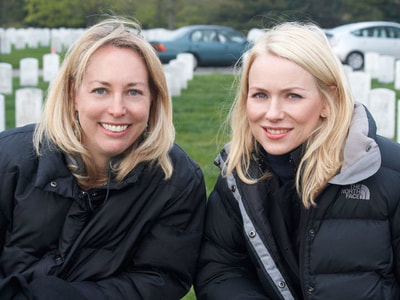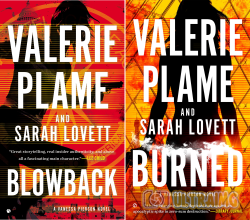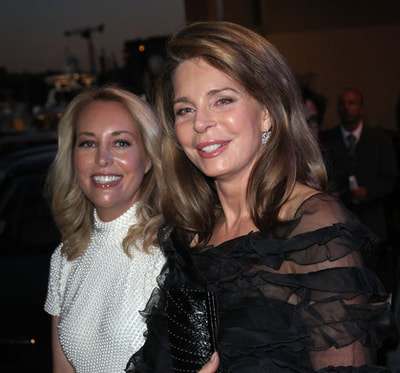|
|
|
As a covert CIA agent, Valerie Plame dedicated her career to protecting America’s national security and preventing the proliferation of weapons of mass destruction and managed top-secret programs to keep terrorists and rogue nation states from acquiring nuclear weapons. Her life garnered international attention when her career came to an extremely dangerous and abrupt halt when she was publicly unmasked in July 2003 after members of the George W Bush administration leaked her identity to the press. She became an international celebrity when in 2007 she wrote the New York Times best-selling memoir Fair Game: My Life as a Spy, My Betrayal by the White House that was subsequently released as a major motion picture starring Sean Penn and Naomi Watts. (Yep, she actually looks like Naomi Watts.) She has since written fictional spy thrillers Blowback and Burned, is regularly featured and interviewed on national and international media. Valerie has also been an incredible asset to Creative Santa Fe; was instrumental in our Disruptive Futures: Nuclear Weapons Summit last year; and is an trusted advisor, mentor, and friend. She is currently organizing the conference “Spies, Lies & Nukes: Inside International Espionage," November 3-4, 2018 to bring together experts with extraordinary experiences and access to the highest levels of US policy-makers. For more information and to register: www.spyseminars.com Here are three questions for Valerie Plame: QUESTION 1: Since being outed in 2003, you have become an important advocate for non-proliferation along with celebrities like Jack Black, Morgan Freeman, Queen Noor of Jordan, and Warren Buffett. Can you speak a bit to why it is important to leverage art, music, theater, pop-culture, and even celebrity to increase public awareness and incite calls to action on this critical issue? We are a celebrity obsessed culture and if those who believe that the world would be better off without nuclear weapons can leverage the arts – and the celebrity culture – to amplify that message, then all the better. By their very nature, nuclear weapons are scary, intimidating, and complicated. Many people will simply shut down and not even think through the issues when you mention “nuclear weapons” because it all just seems too hard. What the arts can do in this realm is provide another access or entry point into the discussion; one that is not quite so fraught with fear. That’s why Creative Santa Fe’s Disruptive Futures: Nuclear Weapons Summit gathering was so revolutionary: it took on a topic that is generally reserved for academia or highly specialized gatherings and blew it wide open. You didn’t have to be an expert to comment and consider the proliferation of nuclear weapons which threatens all humans with extinction. QUESTION 2: In an interview with The Guardian you said “In popular culture, female agents are usually either highly sexualized or hugely physical – it is either using a sequined dress or a gun. But actually the most important weapon you have is your intellect.” Vanessa Pierson, the protagonist in Blowback and Burned, is clearly so much more than the two-dimensional and highly sexualized spy characters of the past. Why is it important, now perhaps more than ever, to feature strong, courageous, intelligent, and powerful women in your work? When stereotyping occurs, whether gender, racial, or religious it is detrimental to all of us because it fails to take into account—or encourage—the spectacular contributions we can make to our world, regardless of our sex, color, or religion. Mountains of research confirm what we have long suspected but not acted on very successfully: better solutions and organizations almost always come from a more diverse set of minds and experiences working on problems. The sexy female spy is a worn troupe that I thought deserved to be tossed out. Why can’t we have a smart, complicated, and yet feminine spy? That was the inspiration behind Vanessa Pierson. The #MeToo movement is an important next step in making sure that more voices are heard and taken into account. This is the moment to celebrate strong, courageous, intelligent and powerful women! QUESTION 3: One of the important lessons we learned in hosting Creative Santa Fe’s Disruptive Futures: Nuclear Weapons Summit is that the topic is so daunting, complex, and politicized that most people feel they could not possibly make a difference. What are ways that people concerned about nuclear weapons can get involved and have agency to make an impact? I agree with this assessment; that an individual faced with the vast international nuclear weapons questions can feel helpless. But giving up or turning away is not the answer. The first step is to begin to understand the issues. I highly recommend the on-line courses offered by the williamjperryproject.org as a place to start. This organization was started by former Secretary of Defense William Perry to engage and educate the public on the dangers of nuclear weapons in the 21st century. It’s accessible, thorough, and really well done. The other way we make changes in our society is through our elected officials. Find out what—if anything—your representatives say about nuclear weapons. Then, act accordingly. Bonus Question: Who do you think is doing the most innovative, interesting, disruptive work right now and why? Given the state of our politically polarized nation and the abundance of “fake news” and its attendant threat to democracy, perhaps some of the most important and disruptive work being done today is genuine investigative reporting from nonpartisan sources. I am a big fan of ProPublica.org for its efforts to “…expose abuse of power by government, business and other institutions and to spur reform thorough the sustained spotlighting of wrongdoing.
0 Comments
Leave a Reply. |
Archives
April 2019
Categories |




 RSS Feed
RSS Feed